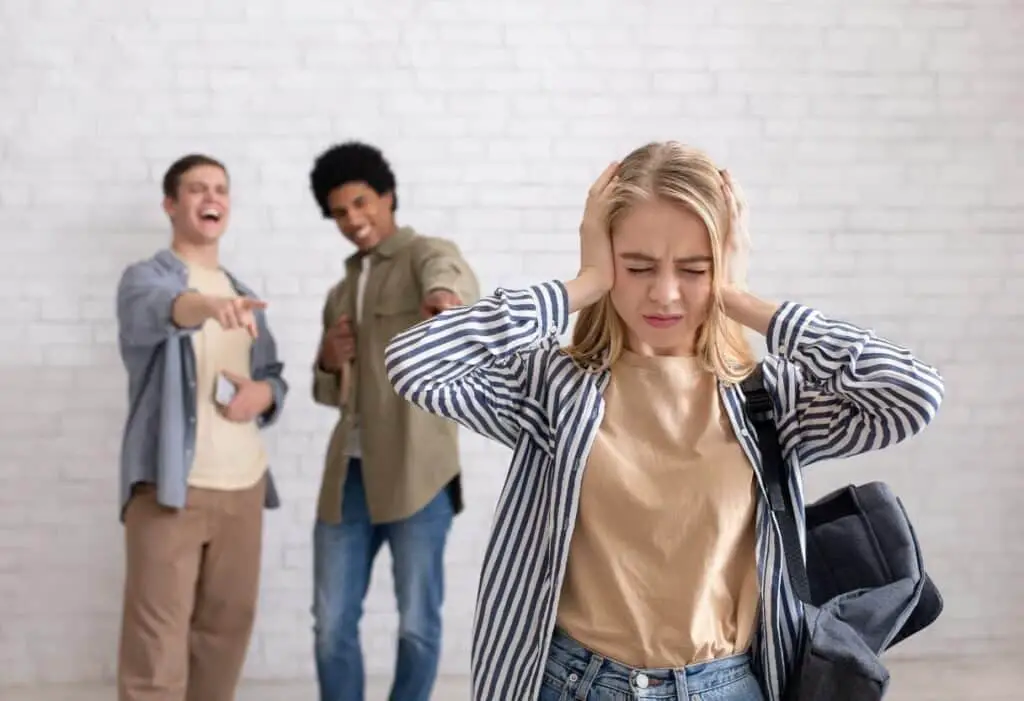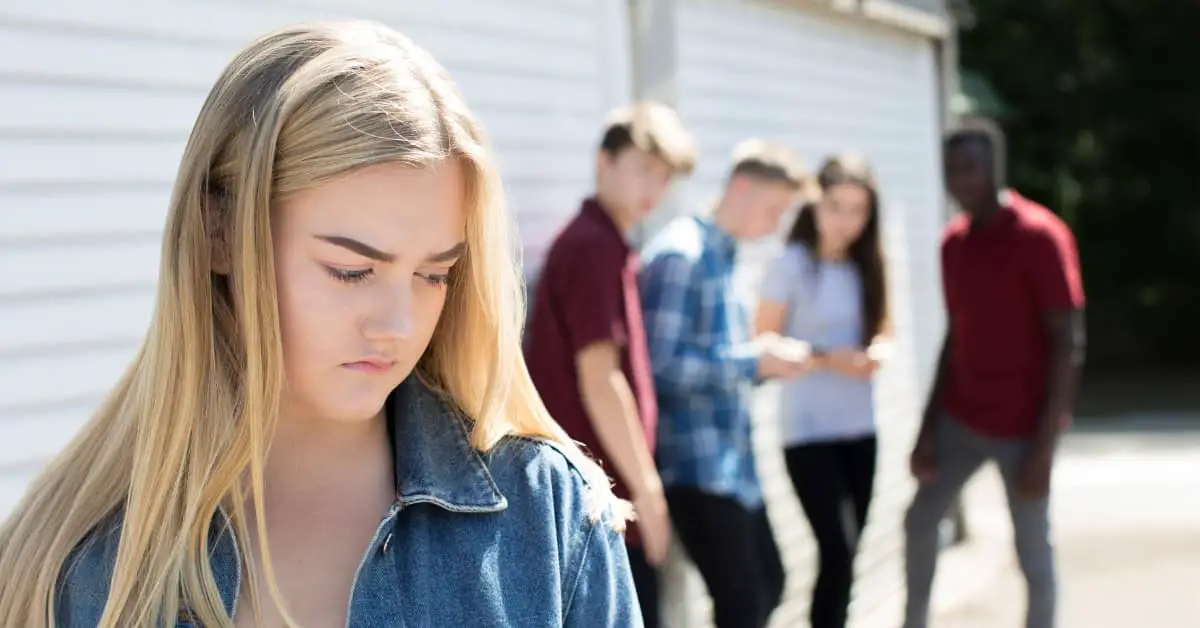How Peer Relationships Can Erode Social Health
Peer relationships significantly shape our social health, the well-being founded on the connections and interactions we have with others. When these relationships are positive, they can bolster our support network, enhance our sense of belonging, and improve our overall mental health. Nonetheless, not all peer relationships contribute positively to our lives.
Negative interactions with our peers can contribute to stress, anxiety, and might erode our self-esteem and confidence, as described in an article about negative peer relationships and their impact on social health. Such experiences lay the groundwork for enduring patterns that affect behavior, choices, and ultimately, health.

An interesting yet often overlooked statistic is that certain negative behaviors such as smoking, excessive alcohol consumption, and poor dietary choices can spread socially among groups of friends, as found in a study by the National Institutes of Health. This suggests that peer influence is not just immediate but can have a long-lasting effect on one’s lifestyle choices and health outcomes. The persuasive power of peers can lead individuals into making choices they otherwise would not consider, whether it’s due to direct pressure, a desire to fit in, or subconsciously mirroring the habits of their social circle.
Understanding the dynamic of peer influence is pivotal in addressing its role in social health. Peer pressures tend to amplify during adolescence, a critical period where social networks are intensely influential. Research leans into this developmental stage, evidencing that mental health disorders can jeopardize adolescent peer relationships and social functioning, as highlighted in a study focused on mental health disorders and adolescent social processes. By acknowledging these subtleties, one can begin to fathom the profound impact peer relationships can have on social health and the importance of cultivating positive and supportive peer interactions.
Understanding Peer Relationships
Peer relationships are a tapestry woven from numerous social encounters, where every interaction can thread either a positive or negative strand into the complex fabric of a person’s social health. At their best, friendships blossom and provide support; yet when negative influences take root, they can unravel one’s emotional well-being.
The Role of Social Networks
Social networks act as the backbone of peer relationships, structuring the intricate web of interactions between individuals. These networks facilitate connections, but can also become pathways for negative influences. For example, exposure to harmful behaviors within a social network can lead to their adoption by other members, thereby affecting an individual’s social health. A study revealed that adolescents might engage in risky behaviors due to peer influence from within their networks, with such tendencies peaking during teenage years.
Communication in Peer Relationships
Effective communication is emblematic of healthy peer relationships, fostering understanding and support between individuals. Conversely, poor communication can lead to misunderstandings and conflicts, subsequently impairing social health. For instance, passive or aggressive communication styles may replace open and assertive exchanges, breeding resentment and withdrawal among peers.
Emotional Development and Friendships
Friendships provide a practicum for emotional development, teaching empathy, cooperation, and coping mechanisms. On the flip side, problematic friendships can impede emotional growth, particularly when they involve bullying or exclusion. Emotional development is closely tied to the quality of peer relationships, and negative interactions therein can inflict long-term damage on an individual’s ability to process and express emotions effectively.
| Recommendations | Minimize opting for solitary activities |
|---|---|
| Comparisons | Dysfunctional vs. Supportive Friendships |
| Stats Highlight | Only 20% of teens recognize the impact of negative peer relationships on their emotional development. |
| Inbound Link | Importance of peer relationships |
| Outbound Link | Understanding adolescence |
Psychological Impacts of Peer Relationships

Once upon a time, there was a notion that friendship only brought joy and comfort, but, as scientific tales unravel, this is only one chapter in the intricate story of peer relationships. They, too, cast shadows on mental health, weaving complex patterns that influence the emotional tapestry of adolescents and adults alike.
Influence on Mental Health
Peer relationships are instrumental in shaping an individual’s mental health. They can act as a double-edged sword; on the positive side, they offer support and validation, yet can also introduce negative peer influence. This negative impact often manifests through pressures to conform and engage in unhealthy behaviors, ultimately affecting an individual’s mental well-being. A study from the National Center for Biotechnology Information delineates how disruptive behavior disorders and anxiety disorders can interfere with the formation of stable and supportive friendships.
Depression Link to Peer Dynamics
Peer dynamics are closely linked to depressive symptoms, particularly during formative years. Adolescents who experience bullying or exclusion by peers may exhibit an increased risk for depression. The brain, especially in the developing stages, is highly susceptible to the emotional stress caused by negative peer interactions, which can contribute to the onset or exacerbation of depressive states. In this context, the negative emotional reactivity brought about by, for instance, social media interactions, has been of recent concern.
Stress and Conflict in Peer Groups
Stress and conflict within peer groups exert a profound influence on individuals’ psychological health. Chronic peer stress can trigger the brain’s stress response systems, potentially leading to long-term changes in stress reactivity. This is particularly true for adolescents, whose developing brains are more vulnerable to the effects of stress. The presence of ongoing conflict can also damage one’s sense of belonging and self-esteem, factors closely associated with psychological distress.
| Area of Concern | Impact on Individual | Consideration |
|---|---|---|
| Peer Pressure | May lead to engagement in risky behaviors | Monitor for changes in behavior |
| Bullying and Exclusion | Can cause feelings of isolation and depression | Provide supportive interventions |
| Social Media Interactions | Linked to negative emotional reactivity | Encourage healthy online boundaries |
| Conflict in Peer Groups | Increased psychological distress | Foster conflict resolution skills |
Interesting stats: A survey uncovers that nearly 30% of adolescents experience significant negative peer pressure, affecting their mental health. However, this often-overlooked statistic is crucial in shaping social health policies and interventions aimed at this demographic.
Negative Peer Influence and Behavior
Once there was a teenager named Alex, who felt the weight of peer influence intensifying with every decision. This story, though unique in its details, echoes the complexities that many teens navigate as they encounter the intricate web of social interactions that can shape their futures.
Peer Pressure and Decision Making
Teens are at a pivotal stage where their decision-making processes are highly susceptible to peer pressure. The brain’s development during adolescence makes them more prone to taking risks, especially when they are in the company of friends. A study in the Journal of Research on Adolescence explains how peer influence can be agnostic to the type of change, whether positive or negative, but it is the peer pressure, in particular, that often leads to maladaptive decisions. For instance, a teen might choose to participate in unhealthy behaviors like smoking or underage drinking because they believe it will enhance their social standing.
Challenges in Teen Peer Relationships
Problems often arise in teen peer relationships when the desire for acceptance clashes with personal values or societal norms. Mental health can be significantly affected during this time, as evidenced by research published on PubMed that suggests mental health disorders during adolescence can negatively impact social functioning. Anxiety disorders and disruptive behavior disorders, which are prevalent among adolescents, may exacerbate the effects of negative peer influence, leading to deteriorating social relationships.
Negative Peer Influence on Learning
Learning and academic performance are not immune to the repercussions of negative peer influence. The attention and energy invested in navigating complex social dynamics can detract from a teen’s focus on education. Research by the NIH News in Health underscores that behaviors such as exercise patterns, dietary habits, and substance use, which are often subject to peer influence, can directly or indirectly affect a student’s cognitive functions and learning outcomes. As they prioritize social acceptance, teens may disengage from academic pursuits, leading to a decline in performance and interest in school.
This narrative of Alex and the statistics surrounding teens and brain development highlight the significant impact that peer relationships can have, especially when they exert a negative influence on behavior, decision-making, and learning.
Social Health and Relationship Quality
Once upon a time, societal norms emphasized the importance of community, but modern narratives often overlook the subtle ways in which the quality of friendships influence our overall health. Recent studies demonstrate that the support systems we nurture in our social circles can either bolster or undermine our quality of life.
Quality of Friendships
Research shows that friendships contribute to social health by offering emotional support, enhancing feelings of belonging, and providing opportunities for positive feedback. However, toxic friendships can lead to stress, which may have detrimental effects on physical health. For example, individuals with poor quality social relationships are more likely to suffer from depression, impacting their overall health and well-being.
- Key Factors in Quality of Friendships:
- Emotional support
- Affirmation
- Shared experiences
Close Relationships and Health
The quality of one’s close relationships, such as those with significant others, directly correlates with personal health outcomes. People who are socially integrated and receive social support tend to live longer. Those in positive relationships often experience better physiological health, such as lower blood pressure and improved immune system function.
- Health Benefits of Close Relationships:
- Emotional intimacy
- Physical well-being
- Stress reduction
Family Versus Peer Influence
While a strong family foundation can provide a sense of security and identity, peers play a unique role in shaping social behaviors, particularly during adolescence. In this formative period, peer relationships can have lasting effects on mental health and social adjustment.
- Comparing Influences:
- Family: Long-term support and identity
- Peers: Immediate social framework and trends
Interesting stats not often discussed include findings that quality friendships in schools can also predict adult health, indicating that the influence of social relationships extends well beyond immediate emotional responses and are deeply embedded into our long-term health trajectories.
Reflection and Insight

In the narrative of social health, reflection and insight play pivotal roles. They are the twin beacons that guide individuals through the intricate landscape of peer relationships, revealing both the scars and the potential for growth.
The Role of Reflection in Social Health
Reflection acts as a mirror to one’s social interactions, enabling an individual to discern patterns in relationships that may be detrimental to their health. Researchers have identified that negative peer dynamics, such as bullying or exclusion, have a tangible impact on social-emotional development. Reflection allows for the recognition of these negative influences and the initiation of strategies to mitigate their effects.
Health Implications:
- Recognizing toxic relationships
- Understanding social stressors
Recommended Actions:
- Journaling: Documenting social interactions daily.
- Mindfulness: Practicing mindfulness to become more aware of the present social experience.
Gaining Insight from Negative Experiences
Gaining insight from adverse peer interactions empowers individuals to transform challenges into stepping stones for personal development. Utilizing the lessons learned from negative experiences, one can build resilience and foster more positive social connections moving forward. Importantly, this process is not just anecdotal; it is grounded in empirical evidence with researchers highlighting the role of resilient responses to social hindrance.
Transformative Insight Stats:
- Up to 70% of individuals report increased resilience after reflective practices post negative peer interactions.
- Peer support programs can show a 50% decrease in social health-related issues.
Insight-Focused Solutions:
- Support Groups: Participating in support groups for shared experiences.
- Professional Help: Seeking support from a therapist or counselor to gain deeper insights.
Role of Support Systems

In the landscape of social health, support systems are the bedrock upon which individuals can lean during challenging times. There was once a community, tightly-knit, that weathered a severe storm through the strength of its support network. Its resilience highlighted how robust social support can significantly shape individuals’ responses to negative peer interactions.
Social Support Networks
Social support networks are indeed vital, as they serve as a safety net for individuals facing adverse effects from peer relationships. These networks can encompass family, friends, and the wider community. For instance, research suggests that those who enjoy a high quantity and quality of social relationships might have a lower risk of mortality compared to their isolated counterparts. Engaging in supportive communication patterns fosters emotional intimacy and mutual understanding, offering a buffer against social health risks.
Impact of Positive Emotions
Experiencing positive emotions has profound effects on social health. They can enhance the quality of interactions within social support networks, making them more effective in mitigating negative outcomes. People who frequently share and receive expressions of affection and encouragement with peers tend to cultivate a sense of belonging and community. The peer support workers’ roles have also been recognized for their positive impact on mental health, highlighting the importance of emotional support.
Coping with Negative Peer Interactions
Coping with negative interactions within peer relationships often requires a multifaceted social support approach. Communication plays a central role, as it can either exacerbate or alleviate social stress. For instance, effective communication within a peer support setting has been linked to better recovery outcomes in mental health, suggesting that fostering a climate of honest, supportive dialogue is crucial. Knowing when to seek external support can help individuals navigate the complexities of peer dynamics.
| Recommendations | Statistics | Comparisons |
|---|---|---|
| Cultivate diverse social networks for robust support. | 23,192 participants: Number involved in a study about the effects of social support on mental health. | Peer support improves mental health outcomes in comparison to isolation. |
| Foster open and supportive communication. | Decreased mortality: Associated with high quality social relationships. | Quality of communication in support networks is often superior to quantity. |
| Engage in activities that elicit positive emotions within peer groups. | Increased recognition: Health systems recognizing peer support roles (SAMHSA, 2021). | Emotional support within peer groups is a significant factor in overall well-being. |
By understanding and reinforcing the role of support systems, individuals and communities can better cope with the negative aspects of peer relationships and maintain their social health.
Research and Future Directions

The landscape of research illuminates the stark influence of peer relationships on social health, with emerging studies underscoring the delicate interplay. Once upon a time in the realm of academia, scholars unearthed patterns that now serve as a guide for current and future explorations.
Recent Research on Peer Influences
Recent studies establish a link between peer relationships and social health, with a particular emphasis on the negative impacts that can arise. Researchers highlight that conditions such as disruptive behavior disorders and anxiety can impede the formation of constructive adolescent friendships. This dynamic suggests that not only do individual health challenges emanate from negative social interactions, but they may also perpetuate social difficulties, establishing a troubling cycle.
| Highlight | Detail |
|---|---|
| Peer Influence | Greater peer adversity correlates with increased stress and poor health outcomes. |
| Behavioral Pathways | Peer relationships impact health behaviors, potentially leading to increased risk-taking. |
Leveraging social network analysis, recent inquiries uncover the nuanced social processes that mediate these relationships. Indeed, the presence of negative social interactions has been shown to wield a more profound effect on psychological well-being than positive interactions.
Improving Social Health in Communities
In response to the challenges depicted by the research, it is imperative to focus on improving social health within communities. One avenue of improvement is the identification of relational benefits and costs through the health policy prism. Such an approach could encompass behavioral, psychosocial, and physiological facets of social interactions, as suggested by findings from the realm of health policy.
| Recommendations | Action Plan |
|---|---|
| Community Programs | Develop initiatives targeting improved social connections. |
| School-Based Interventions | Introduce curricula to nurture healthy peer relationships. |
Researchers also underscore the need to explore peer influence processes toward health risk behaviors and their neurological correlates. This understanding could facilitate strategies to mitigate negative peer influences and foster social connections that promote overall well-being.
With this foregrounded, communities and policymakers are poised to navigate the social fabric with more precision, potentially culminating in more robust social health outcomes.

